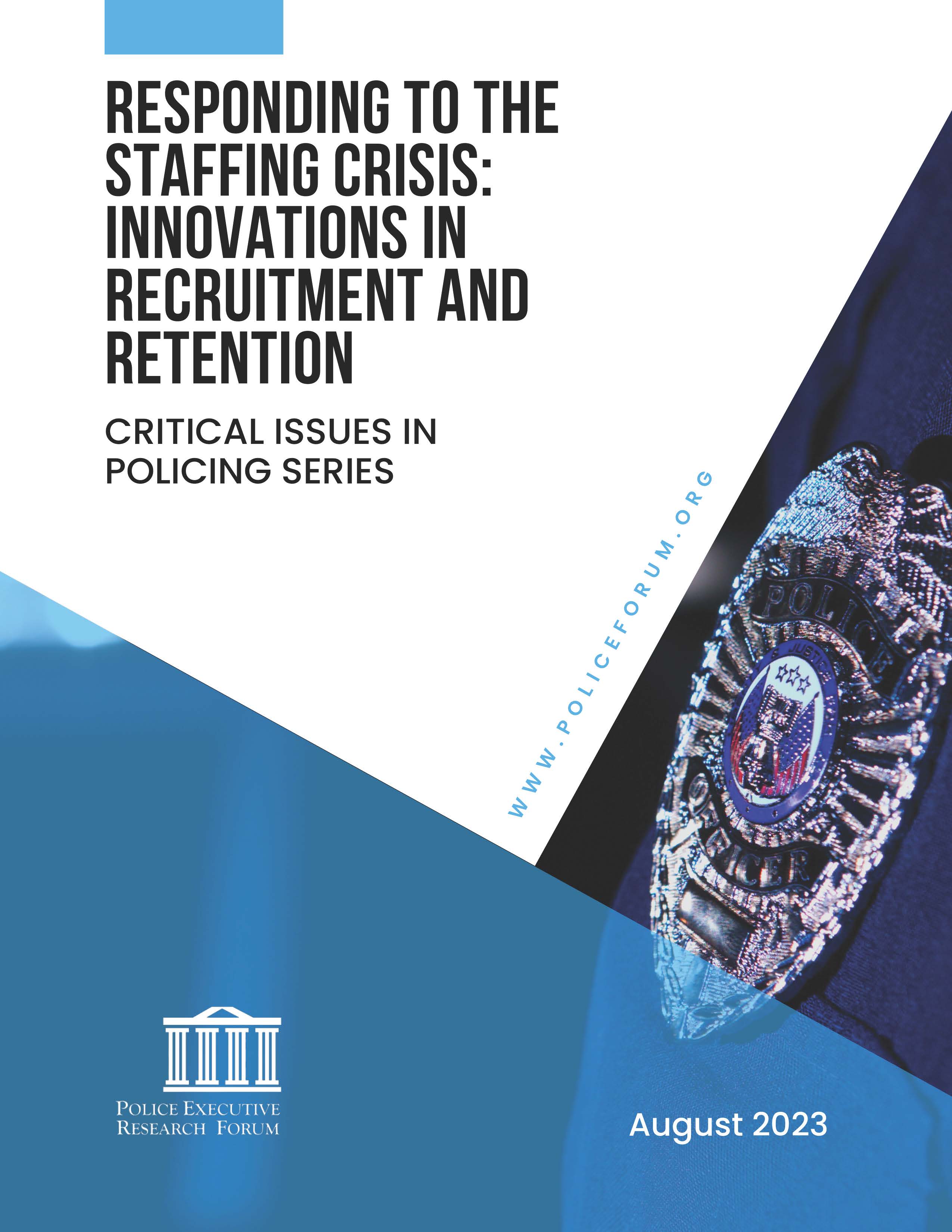|
August 12, 2023 Overhauling the hiring process
PERF members, Our latest report, Responding to the Staffing Crisis: Innovations in Recruitment and Retention, addresses a challenge most of you are facing: hiring and retaining police officers. Today I want to focus on reengineering the hiring process, which many of you have told me is largely outdated, bureaucratic, and overly cumbersome. Kansas City, KS Chief Karl Oakman summarized the problem nicely at PERF’s Annual Meeting: “One of the issues I’ve had for about 20 years is the [hiring] process time. I’ve been able to make it to where it takes about 30 days from start to finish. I realize it usually takes six months, but for most of that six months we just fiddle around until we get to the next step, and then to the next step. It’s always taken about 30 days of actual work, but for some reason it would take us six to seven months to hire someone.” There was a time when there were more qualified applicants than police officer positions, so agencies could take their time and still have a strong candidate pool. But now they are facing a shortage of applicants and a 3.5 percent unemployment rate. Agencies are in competition with the private sector and each other. Applicants won’t wait nine months for a job if another law enforcement agency or a private sector job hires them in less than half that time. It’s time to modernize the hiring process. One part of the problem is outdated hiring standards that eliminate promising candidates and add to the overall screening time. When hiring officers, some agencies are changing their views on formal education, life experience, and age. Agencies may prefer an older candidate with more life experience over a 22-year-old who just graduated from college. Some agencies are reassessing physical fitness tests to modify or eliminate requirements that may not reliably indicate whether a candidate will be a good police officer. The Montgomery County, MD Police Department eliminated their physical fitness test entirely, instead inviting applicants to weekend workouts that prepare them for the police academy. And agencies are reevaluating eligibility requirements regarding prior substance use, particularly marijuana, as more states decriminalize or legalize its use. Some have also modified or eliminated tattoo restrictions to avoid eliminating otherwise qualified applicants. To shorten the length of the hiring process, some agencies are using third-party testing vendors and virtual meetings to reduce the delays that come with scheduling candidates for in-person meetings. And a few agencies, such as the Royal Canadian Mounted Police, the Rockville, MD Police Department, and the Baltimore County, MD Police Department, are holding one-stop assessment centers that consolidate many of the required tests and screenings into a single coordinated event. To get candidates into the training academy quickly after they are hired, agencies are holding smaller, more frequent academies. And some have created pre-hire programs to employ candidates as they wait for the academy to begin. One agency that has made significant improvements is the Prince William County, VA Police Department. Two years ago, PERF completed a study of the agency’s recruitment and hiring practices, and the department has since made a number of changes:
Prince William County Chief Peter Newsham and Captain Dave Smith describe these changes on p. 30-31 of the report. Chief Newsham told me that by making these changes and proactively reaching out to candidates to guide them through the process, the department was able to reduce their hiring process time from six months to three months. And these changes, as well as changes to their recruitment practices, have led to more diverse recruit classes. If I were a chief today, I would benchmark my agency’s hiring time against comparable agencies. Then I would process map my hiring process and ask where the longest delays are occurring. For example, is it taking six months to do a background investigation? How can we accomplish this process efficiently without cutting corners? And I’d make sure my background investigators are aligned with the culture I’m trying to build. Chiefs have told me that they’ve reviewed rejected applicants and found good candidates. Background investigators need clear guidance and regular oversight. I’d also take a close look at my agency’s policies about prior drug use. This issue continues to be a challenge for police departments and a frustration for some engaged candidates. When determining who would make a good police officer, a candidate’s actions years ago are less important than their recent activities. Forward-thinking departments are looking at the totality of a candidate’s qualifications, instead of automatically disqualifying them for something they may have done years ago. Agencies may not be able to cut their hiring processes down to 30 days like Chief Oakman, but I think this is an area where many could dramatically improve. I hope this report, as well as 2019’s The Workforce Crisis, and What Police Agencies Are Doing About It and 2017’s Hiring for the 21st Century Law Enforcement Officer, serve as valuable resources as you assess your own hiring processes. Deciding who to hire is an important decision that will affect your agency for the next 20 years. Best, Chuck |

